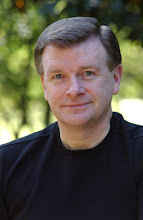
“Well, that didn’t work” is a practical commentary on failure. Not that failure is accepted. Failure as a follower of Christ is never accepted, but it must be acknowledged. When confronted in repentance, failure gives way to restoration, to a renewed walk that, because of the experience, is better prepared for similar situations in the future. Colloquial wisdom calls it “Learning from our mistakes.”
Peter was exposed to endless hours of instruction as he journeyed with Jesus, living in community day after day, night after night. His instruction clearly included the stories of Israel, the heritage to which his own story was being added. When confronted with the “kill and eat” dream on the rooftop of Simon Tanner’s home in Joppa, Peter’s reaction was informed by the theology that was the fabric of his own story, “By no means. I have never eaten anything unholy and unclean.”Obeying God’s direction, Peter went with those who had extended him an invitation to visit a gentile home in Caesarea. As result of Cornelius’ prayer and God’s response, Peter encountered a community of people who were waiting in the soldier’s home to hear good news from God.
At that moment, Peter made an interesting statement, “I most certainly understand now that God is not one to show partiality” (Acts 10:34). “I most certainly understand now.” To what did the “now” of Peter’s statement refer? It must have referred to the total experience of the last twenty-four hours: a dream on a rooftop, an argument with God, relinquishing tradition to obey God’s direction, entering a gentile’s home, hearing how his being there was God’s answer to Cornelius’ prayer, responding to people who were waiting for God’s promised message.
The totality of that experience, all the parts combined, became Peter’s “now.” Apart from the “now” Peter had only words of instruction; propositional truth. But as he obeyed God, theological propositions became experiential truth for him. Let me be clear, I do not mean to imply that the theological propositions alone were untrue. Their truth was activated by obedience. As he confronted his own failure to fully grasp the truth of God, as he repented (turned around, going where he thought he would never go), restoration brought him one step closer to being conformed to the image of Jesus Christ. And that is God’s intent for every disciple.











